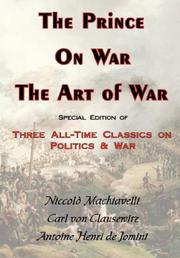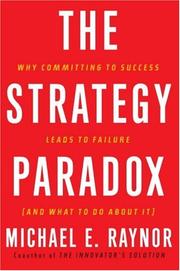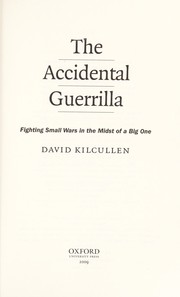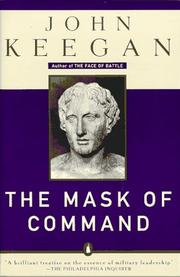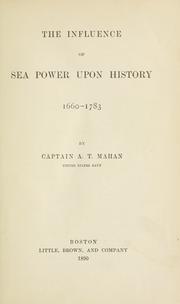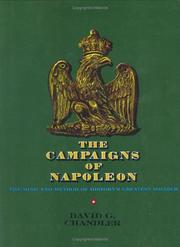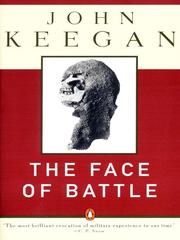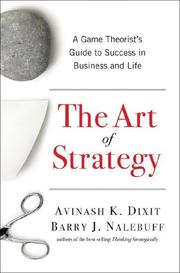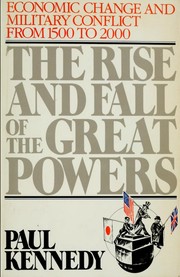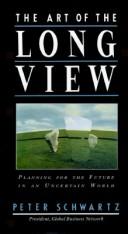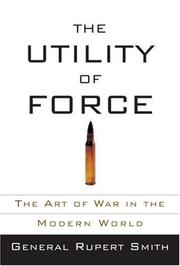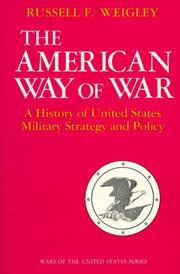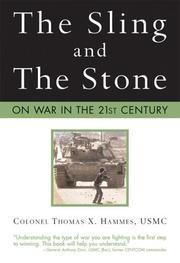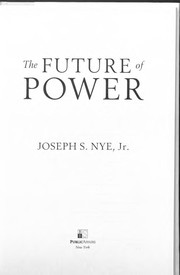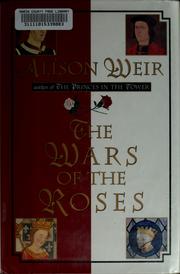If you are a history buff, a military enthusiast, or just someone who appreciates the intricacies of strategic thinking, then you’ll love diving into the world of war strategy books. Whether you’re interested in ancient battles, modern warfare, or the art of leadership on the battlefield, there’s a book on war strategy out there for you. In this article, we’ll explore the 20 best books about war strategy that will give you insight into the minds of great military leaders, the tactics they employed, and the outcomes of their battles. Get ready to immerse yourself in the world of military strategy and be inspired by the brilliance and ingenuity of the greatest military minds in history.
Contents
- 1 20 Best War Strategy Books
- 2 The Art of War
- 3 On War
- 4 The Strategy Paradox
- 5 The Accidental Guerrilla
- 6 The Mask of Command
- 7 The Grand Strategy of the Byzantine Empire
- 8 The Influence of Sea Power upon History
- 9 The Campaigns of Napoleon
- 10 The Face of Battle
- 11 The Art of Strategy
- 12 The Second World War
- 13 The Making of Strategy
- 14 The Rise and Fall of the Great Powers
- 15 The Art of the Long View
- 16 The Utility of Force
- 17 The American Way of War
- 18 The Sling and the Stone
- 19 The Future of Power
- 20 The Strategy Book
- 21 The Wars of the Roses
- 22 Final Thoughts on Best War Strategy Books
- 23
20 Best War Strategy Books
The Art of War
by Sun Tzu
The Art of War by Sun Tzu is a timeless classic that has been revered for centuries as a masterpiece of military strategy. This ancient Chinese text, written over 2,500 years ago, offers profound insights into the art of warfare and has influenced leaders and military thinkers throughout history. The book is a comprehensive guide to the tactics, strategies, and philosophies of war, offering valuable lessons on leadership, planning, and combat. Sun Tzu’s teachings on deception, maneuvering, and the importance of understanding the enemy’s weaknesses have made this book a must-read for anyone interested in the art of warfare.
Through its concise and powerful prose, The Art of War provides practical wisdom that transcends the battlefield, making it a valuable resource for business leaders, politicians, and anyone seeking to gain a deeper understanding of conflict and competition. This timeless war strategy book continues to be a source of inspiration and insight for those seeking to achieve victory in any arena of life.
On War
by Carl von Clausewitz
On War by Carl von Clausewitz is a timeless classic that delves into the complexities of warfare and military strategy. This influential book on war strategy explores the nature of war, the dynamic interplay of politics and warfare, and the importance of understanding the human element in conflict. Clausewitz’s in-depth analysis of war as a social and political phenomenon has made this book a must-read for military leaders, historians, and strategists alike.
Through his insightful examination of the theory and practice of war, Clausewitz provides valuable insights into the ever-changing nature of warfare and the strategic decisions that shape the outcome of conflicts. His profound observations on the fog of war, the role of chance, and the concept of “friction” in military operations have had a profound impact on the study of war strategy.
Whether you’re a student of military history or simply interested in understanding the dynamics of conflict, On War is a thought-provoking and enlightening book about war strategy that continues to resonate with readers today.
The Strategy Paradox
by Michael E. Raynor
The Strategy Paradox by Michael E. Raynor is a thought-provoking book on war strategy that challenges traditional thinking about strategic planning. Raynor explores the paradox of strategy, where successful companies often fail to sustain their success, and struggling companies unexpectedly rise to the top. By examining historical case studies and drawing parallels to military strategy, Raynor uncovers the unpredictable nature of strategy and the inherent risks of strategic decision-making. He argues that traditional strategic planning methods may not always lead to success and offers alternative approaches to navigate the uncertainty of strategic decision-making. This book about war strategy provides valuable insights for business leaders, military strategists, and anyone interested in understanding the complexities of strategic planning. With its engaging storytelling and compelling analysis, The Strategy Paradox offers a fresh perspective on the challenges of navigating the unpredictable terrain of competition.
The Accidental Guerrilla
by David Kilcullen
The Accidental Guerrilla by David Kilcullen is a compelling book on war strategy that delves into the complex dynamics of modern warfare. Kilcullen, a renowned expert on counterinsurgency, explores the concept of the ‘accidental guerrilla’ – individuals who are drawn into insurgent movements not out of ideology, but as a result of local grievances and external influences. Through his extensive experience as a military officer and advisor, Kilcullen provides a deep understanding of the challenges faced in combating insurgencies and offers valuable insights into effective counterinsurgency strategies.
Using vivid examples and case studies from his time in the field, Kilcullen illustrates the interconnectedness of local and global factors that contribute to the rise of insurgencies, and emphasizes the importance of understanding the local context in developing successful counterinsurgency efforts. The Accidental Guerrilla is a thought-provoking and informative book about war strategy that is essential reading for anyone seeking to gain a deeper understanding of modern conflict and the intricacies of counterinsurgency warfare.
The Mask of Command
by John Keegan
The Mask of Command by John Keegan is a fascinating exploration of leadership and authority in the context of warfare. Through an in-depth analysis of four iconic military leaders – Alexander the Great, Wellington, Ulysses S. Grant, and Adolf Hitler – Keegan delves into the complexities of command and the different strategies employed by these leaders to achieve their goals. The book provides a thought-provoking look at the psychology of leadership, the impact of personality on decision-making, and the role of charisma in shaping the course of history. Keegan’s insightful examination not only sheds light on the nature of leadership in war but also offers valuable lessons for leaders in any field. Whether you’re a history enthusiast, a student of military tactics, or simply curious about the dynamics of authority, The Mask of Command is a compelling read that offers a fresh perspective on the art of leadership in times of conflict. This book about war strategy is a must-read for anyone interested in the complexities of command and the strategies employed by iconic military leaders.
The Grand Strategy of the Byzantine Empire
by Edward N. Luttwak
The Grand Strategy of the Byzantine Empire by Edward N. Luttwak is a captivating book on war strategy that provides a comprehensive analysis of the Byzantine Empire’s military and political tactics. Luttwak delves into the strategic mindset of the Byzantines, exploring their unique approach to warfare and diplomacy that allowed them to survive and thrive for over a millennium. The book offers valuable insights into the empire’s ability to adapt to constantly changing geopolitical conditions, making it a timeless resource for anyone interested in the art of war.
The Influence of Sea Power upon History
by Alfred Thayer Mahan
The Influence of Sea Power upon History by Alfred Thayer Mahan is a groundbreaking book on war strategy that explores the pivotal role of naval power in shaping global politics and military conflicts. Mahan’s influential work delves into the significance of maritime dominance in historical events, emphasizing the profound impact of naval strength on the rise and fall of nations. Through meticulous analysis of naval battles and historical examples, Mahan argues that control of the seas is essential for a nation’s security and prosperity.
This book about war strategy captivates readers with its compelling narrative and insightful exploration of naval warfare, making it an indispensable resource for military historians, strategists, and anyone interested in the dynamics of international relations. Mahan’s timeless insights continue to resonate in contemporary geopolitical discussions, solidifying the enduring relevance of this classic war strategy book for understanding the complexities of global power dynamics.
The Campaigns of Napoleon
by David G. Chandler
The Campaigns of Napoleon by David G. Chandler is an authoritative and comprehensive book on the military exploits of one of history’s most legendary leaders. This captivating book about war strategy provides a detailed account of Napoleon’s military campaigns, from his early victories in Italy to his final defeat at Waterloo. Chandler’s thorough research and engaging writing style bring the battles and tactics of Napoleon’s wars to life, making it a must-read for history buffs and military enthusiasts alike. The book on war strategy delves into Napoleon’s strategic genius, his innovative use of tactics, and the political and social context of his conquests. Chandler’s work is a fascinating exploration of the art of warfare, offering valuable insights into the mind of a military mastermind and the enduring impact of his campaigns. Whether you’re a student of history or simply intrigued by tales of military conquest, The Campaigns of Napoleon is a captivating war strategy book that will leave you spellbound.
The Face of Battle
by John Keegan
The Face of Battle by John Keegan is a captivating book about the dynamics of warfare. Keegan, a renowned military historian, delves into the intricacies of battle, exploring the experiences of soldiers on the front lines. Through meticulous research and powerful storytelling, he brings to life three pivotal historical battles: Agincourt, Waterloo, and the Somme. This compelling narrative not only provides a vivid portrayal of the chaos and brutality of war, but also offers valuable insights into the strategies and tactics employed by military leaders.
Keegan’s nuanced analysis goes beyond mere accounts of combat, delving into the psychological and emotional aspects of warfare. His thought-provoking exploration of the human experience in battle offers a deeper understanding of the complexities of armed conflict. The Face of Battle is a must-read for anyone interested in military history, as it provides a unique perspective on the realities of war and its impact on individuals and societies. This book about war strategy is a timeless and essential addition to the library of any history enthusiast or military strategist.
The Art of Strategy
by Avinash K. Dixit and Barry J. Nalebuff
The Art of Strategy by Avinash K. Dixit and Barry J. Nalebuff is an insightful exploration of the principles of strategic decision-making. The authors present a comprehensive framework for understanding and applying strategic thinking in various contexts, from business to personal interactions. Drawing on a wide range of examples and case studies, they offer practical advice on how to anticipate and respond to competitive moves, negotiate effectively, and make sound decisions in the face of uncertainty.
This book is not just a traditional war strategy book; it goes beyond that and delves into the complexities of decision-making in all aspects of life. It provides readers with the tools to think strategically and make better choices, whether they are facing a business rival or navigating personal relationships. The Art of Strategy is a must-read for anyone seeking to enhance their strategic thinking skills and gain a deeper understanding of the art of decision-making.
The Second World War
by Antony Beevor
The Second World War by Antony Beevor is a comprehensive and gripping account of one of the most devastating conflicts in human history. This book on war strategy delves into the complex web of political intrigue, military tactics, and human suffering that characterized the war. Beevor skillfully weaves together the grand military strategies with the personal experiences of soldiers and civilians, providing a multifaceted view of the conflict.
Readers will be transported to the battlefields of Europe, the Pacific, and Africa, as well as the political corridors of power where decisions that shaped the course of the war were made. Beevor’s meticulous research and engaging writing style make this book about war strategy a compelling and accessible read, suitable for both history enthusiasts and casual readers alike.
Whether you are a seasoned scholar of military history or simply curious about the defining conflict of the 20th century, The Second World War is a must-read for anyone interested in understanding the complexities of war strategy and the human cost of global conflict.
The Making of Strategy
by Williamson Murray, Alvin Bernstein, and MacGregor Knox
The Making of Strategy is a comprehensive book on war strategy that provides a detailed analysis of the evolution of military thought and the development of strategic thinking from ancient times to the modern era. Written by Williamson Murray, Alvin Bernstein, and MacGregor Knox, this book about war strategy explores the complex interplay of political, social, and technological factors that have shaped military strategies throughout history.
Readers will gain valuable insights into the key military thinkers and their contributions to the war strategy book, as well as the impact of major historical events on the evolution of strategic thought. The authors skillfully examine the challenges and innovations that have driven the development of military strategies, making this book on war strategy an essential resource for anyone interested in understanding the intricacies of warfare and strategic decision-making.
The Rise and Fall of the Great Powers
by Paul Kennedy
The Rise and Fall of the Great Powers by Paul Kennedy is a captivating exploration of the ebb and flow of nations throughout history. This renowned book delves into the complex interplay of economics, military might, and geopolitics, offering a thought-provoking analysis of the ascent and decline of major world powers.
With an impressive blend of historical insight and strategic analysis, Kennedy provides a comprehensive examination of the factors that have shaped the fortunes of great nations over the centuries. From the rise of empires to their eventual downfall, the book offers a fascinating look at the patterns and forces that have determined the course of history.
Whether you’re a history enthusiast, a student of international relations, or simply intrigued by the dynamics of global power, this book is a must-read. Its relevance transcends time, making it an essential resource for anyone seeking a deeper understanding of the complexities of international relations and the enduring principles of war strategy.
The Art of the Long View
by Peter Schwartz
The Art of the Long View by Peter Schwartz is a fascinating exploration of strategic planning and foresight. This insightful book delves into the principles of scenario planning, a crucial tool for navigating an uncertain future. Schwartz, a renowned futurist, provides a comprehensive guide for individuals and organizations seeking to anticipate and prepare for various possible futures. Through compelling case studies and practical exercises, he demonstrates the importance of thinking long-term and developing strategic resilience. Whether you’re a business leader, policy maker, or simply interested in honing your strategic thinking skills, this book offers valuable insights that can be applied to a wide range of contexts. With its emphasis on strategic foresight and planning, The Art of the Long View is a must-read for anyone looking to gain an edge in an increasingly complex and unpredictable world.
The Utility of Force
by Rupert Smith
The Utility of Force by Rupert Smith is a groundbreaking book on war strategy that challenges traditional military thinking. Smith, a retired British general, offers a fresh perspective on contemporary warfare, arguing that the nature of conflict has evolved and that traditional military strategies are no longer effective.
In this book about war strategy, Smith introduces the concept of “war amongst the people,” emphasizing the importance of understanding the complex social, political, and cultural factors that shape modern conflicts. He also explores the role of technology, media, and international politics in shaping the battlefield.
Smith’s insights are based on his extensive military experience and provide valuable lessons for policymakers, military leaders, and anyone interested in understanding the dynamics of modern warfare. The Utility of Force is a must-read for anyone seeking a deeper understanding of the complexities of contemporary conflict and the challenges of waging war in the 21st century.
The American Way of War
by Russell F. Weigley
The American Way of War by Russell F. Weigley is a seminal book on war strategy that delves into the history and evolution of American military tactics. Weigley’s comprehensive analysis provides a fascinating look at how the United States has approached warfare from its founding to modern times.
This book about war strategy explores the unique characteristics of American military doctrine, from its roots in colonial times to the present day. Weigley examines the influence of technology, politics, and culture on the development of American military strategy, offering valuable insights into the nation’s approach to conflict and its impact on global events.
With meticulous research and compelling narrative, The American Way of War is a must-read for anyone interested in understanding the evolution of war strategy and the role of the United States in shaping modern warfare. Weigley’s exploration of the American military mindset and its impact on historical events makes this war strategy book an essential addition to the library of any enthusiast of military history and strategy.
The Sling and the Stone
by Thomas X. Hammes
The Sling and the Stone by Thomas X. Hammes is a captivating book on war strategy that challenges traditional military tactics and offers a fresh perspective on modern warfare. With insightful analysis and real-life examples, the author explores the dynamics of 21st-century conflicts and provides valuable insights for military leaders, policymakers, and anyone interested in understanding the complexities of contemporary warfare.
Hammes introduces the concept of “Fourth Generation Warfare” and emphasizes the importance of adapting to unconventional and asymmetric threats. Drawing from historical battles and modern-day insurgencies, he presents a thought-provoking argument for the need to evolve and innovate in order to effectively confront the diverse challenges of today’s battlefield.
This book about war strategy is a must-read for anyone seeking a deeper understanding of military operations and the evolving nature of conflict. With its engaging narrative and thought-provoking ideas, The Sling and the Stone offers a compelling exploration of modern warfare and the strategies needed to succeed in an ever-changing world.
The Future of Power
by Joseph S. Nye Jr.
The Future of Power by Joseph S. Nye Jr. is a thought-provoking exploration of the changing dynamics of global power in the 21st century. Nye examines the traditional forms of power, such as military strength and economic might, and introduces the concept of “soft power,” which encompasses the ability to influence others through attraction and persuasion rather than coercion. This groundbreaking book on war strategy delves into the impact of technology, globalization, and the rise of non-state actors on the distribution of power in the international arena.
Nye’s insightful analysis presents a compelling argument for the continued relevance of traditional power resources alongside the increasing importance of soft power in shaping global politics. With a focus on the evolving nature of power in the digital age, The Future of Power offers valuable insights for policymakers, business leaders, and anyone interested in understanding the complex dynamics of international relations. This war strategy book is a must-read for anyone seeking to navigate the complexities of contemporary geopolitics.
The Strategy Book
by Max Mckeown
The Strategy Book by Max Mckeown is a comprehensive guide to developing winning strategies in any competitive arena. Whether you’re a business leader, entrepreneur, or military strategist, this book provides practical insights and actionable tactics to help you navigate the complex world of competition. Mckeown draws on a wide range of examples from business, sports, and military history to illustrate the key principles of strategy. The book covers everything from understanding the competitive landscape to executing and adapting your strategy in the face of changing circumstances. It’s a must-read for anyone looking to gain a competitive edge and achieve long-term success. With its clear and engaging writing style, The Strategy Book is a valuable resource for anyone seeking to master the art of strategy and outmaneuver their rivals.
The Wars of the Roses
by Alison Weir
Alison Weir’s The Wars of the Roses is a captivating historical account of the tumultuous 15th-century conflict that tore England apart. This gripping narrative delves into the power struggles, betrayals, and bloodshed that defined this turbulent period, as two rival branches of the House of Plantagenet, the Lancastrians and the Yorkists, fought for the throne.
Weir’s meticulous research and vivid storytelling bring to life the key players in this epic struggle, from the ambitious and ruthless Richard III to the indomitable Margaret of Anjou. Through her expert analysis, readers gain a deeper understanding of the complex web of alliances, battles, and political machinations that shaped the outcome of the war.
For history enthusiasts and those with a keen interest in medieval politics and conflict, this book about war strategy is a must-read. Weir’s meticulous attention to detail and her ability to make the past come alive make The Wars of the Roses a compelling and enlightening read that sheds new light on this pivotal moment in English history.
Final Thoughts on Best War Strategy Books
In conclusion, these 20 best books about War Strategy offer a comprehensive and insightful look into the world of military tactics and leadership. From historical accounts to modern analyses, these books provide valuable lessons and perspectives on the art of war. Whether you’re a military enthusiast or a strategic thinker, these books are essential reading for anyone interested in the complexities of conflict and the strategies employed to achieve victory.
Which book about War Strategy is best?
The best book on War Strategy can vary with personal preference, but three widely recommended titles are:
- The Art of War by Sun Tzu,
- On War by Carl von Clausewitz,
- The Strategy Paradox by Michael E. Raynor.
Each offers valuable insights and could be a great starting point.
What are the best books to learn about War Strategy?
For those looking to learn about War Strategy, there is a wealth of literature that can provide a comprehensive understanding of the subject. Some of the most highly recommended books include:
- The Art of War by Sun Tzu,
- On War by Carl von Clausewitz,
- The Strategy Paradox by Michael E. Raynor,
- The Accidental Guerrilla by David Kilcullen,
- The Mask of Command by John Keegan,
- The Grand Strategy of the Byzantine Empire by Edward N. Luttwak,
- The Influence of Sea Power upon History by Alfred Thayer Mahan,
- The Campaigns of Napoleon by David G. Chandler,
- The Face of Battle by John Keegan,
- The Art of Strategy by Avinash K. Dixit and Barry J. Nalebuff
These books offer a range of perspectives on War Strategy, covering various aspects and approaches to the subject.
What are the best books about War Strategy?
The best books about War Strategy are:
- The Art of War by Sun Tzu,
- On War by Carl von Clausewitz,
- The Second World War by Antony Beevor,
- The Making of Strategy by Williamson Murray, Alvin Bernstein, and MacGregor Knox,
- The Campaigns of Napoleon by David G. Chandler,
- The Grand Strategy of the Byzantine Empire by Edward N. Luttwak.
Each offers unique insights into the subject. While these books about War Strategy are highly regarded, it’s important to note that any list of ‘best’ books is subjective and reflects a range of opinions.
What are the best War Strategy books of all time?
Choosing the best War Strategy books of all time can vary depending on who you ask, but five titles that are often celebrated include
- The Art of War by Sun Tzu,
- On War by Carl von Clausewitz,
- The Mask of Command by John Keegan,
- The Campaigns of Napoleon by David G. Chandler,
- and The Second World War by Antony Beevor.
Each of these books has made a significant impact in the field of War Strategy and continues to be influential today.


